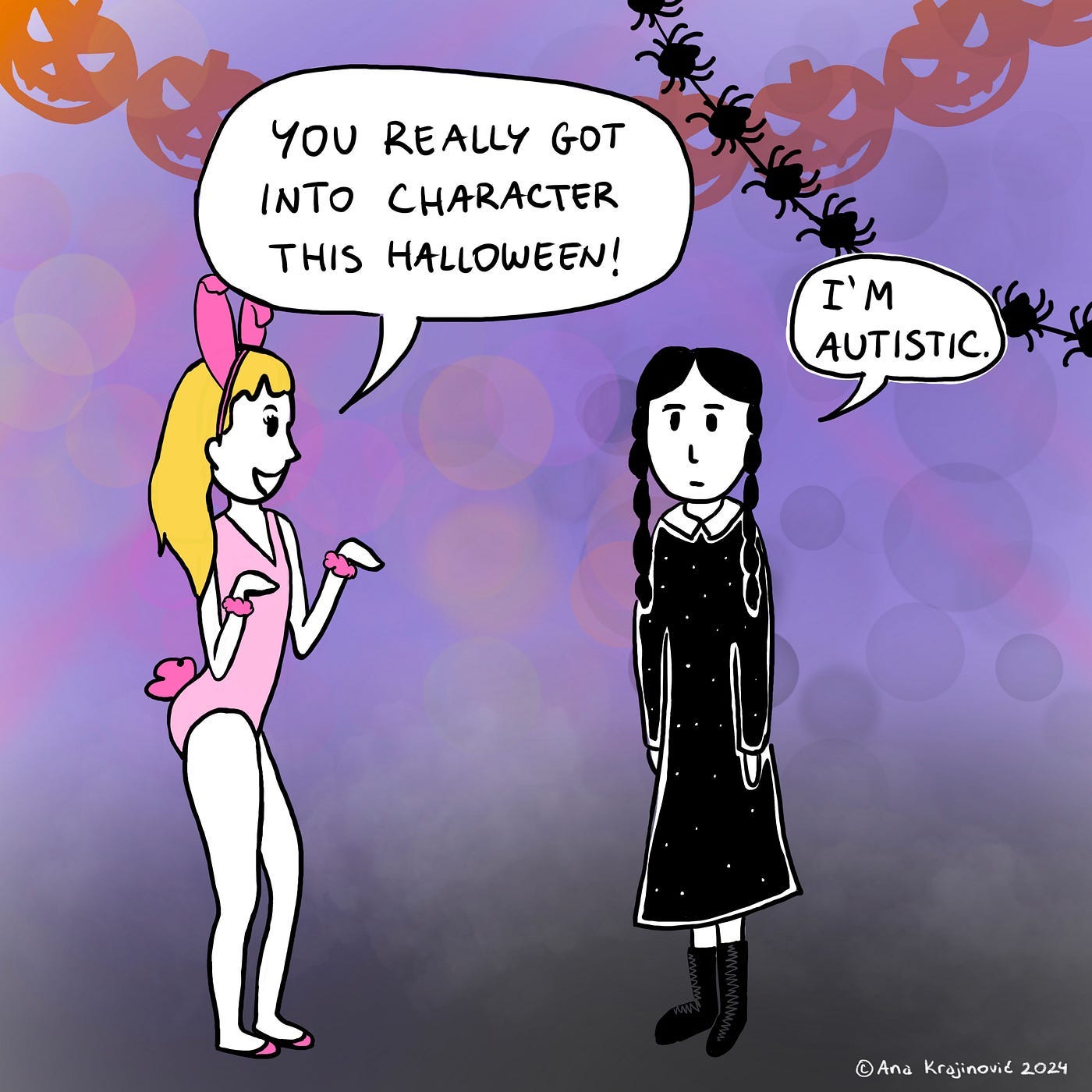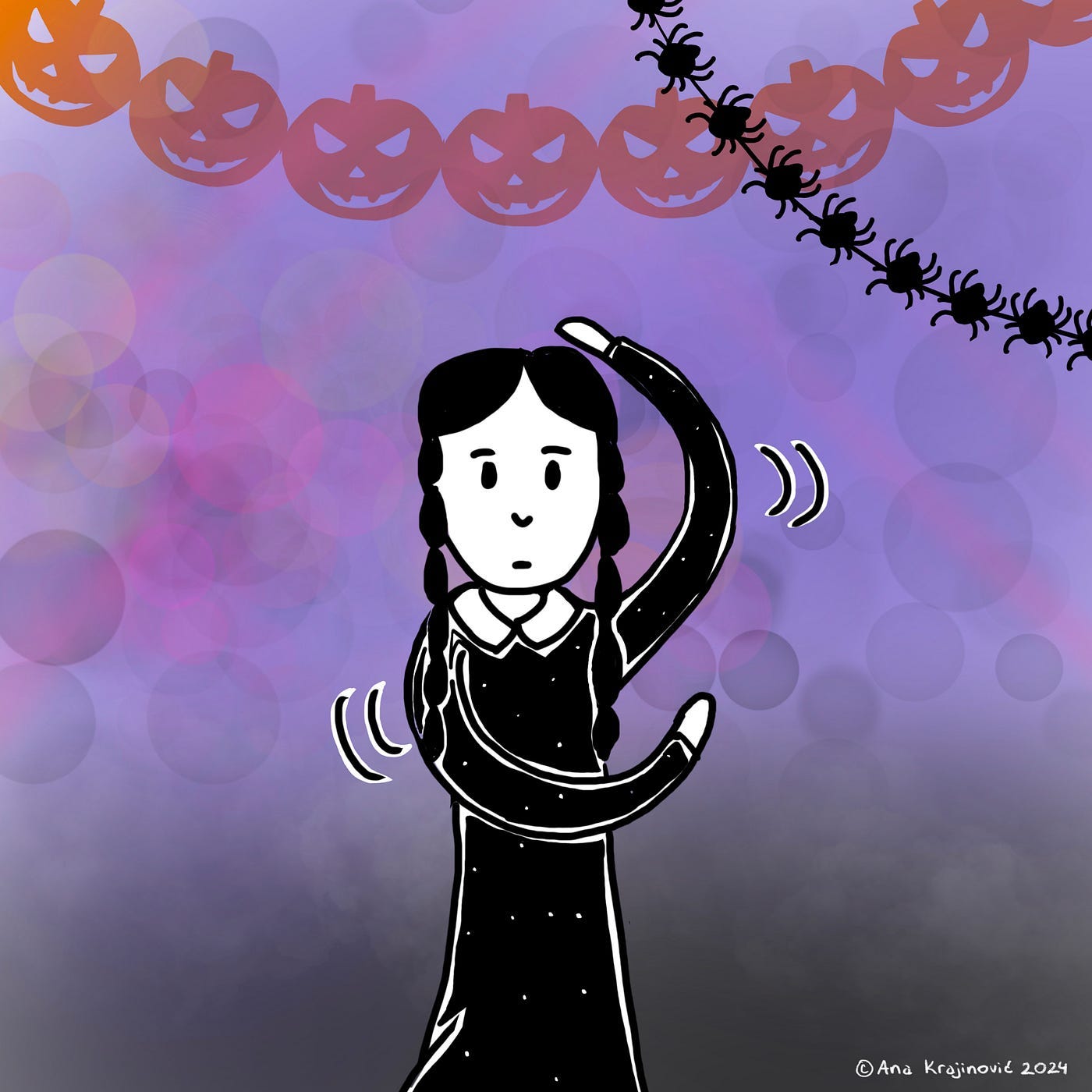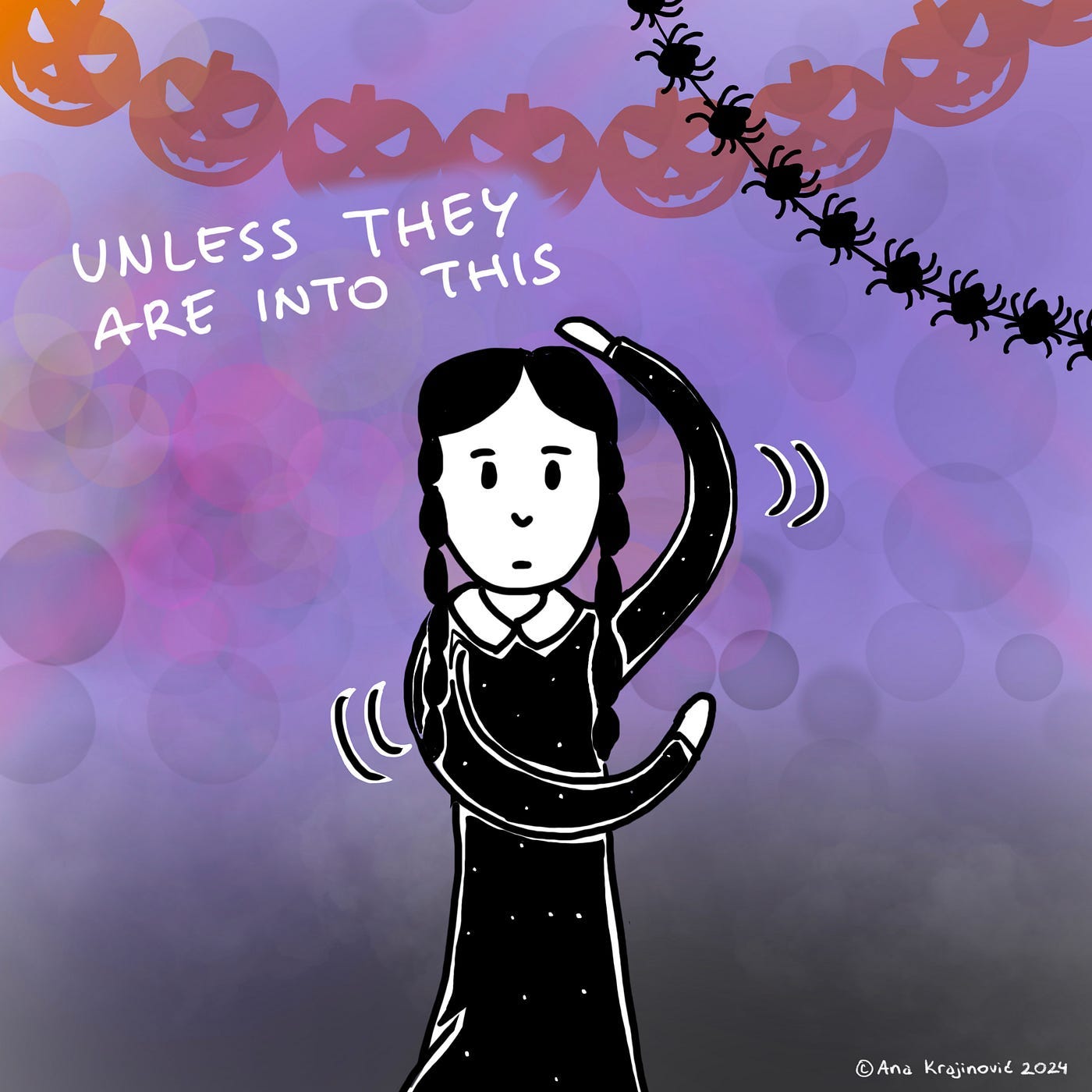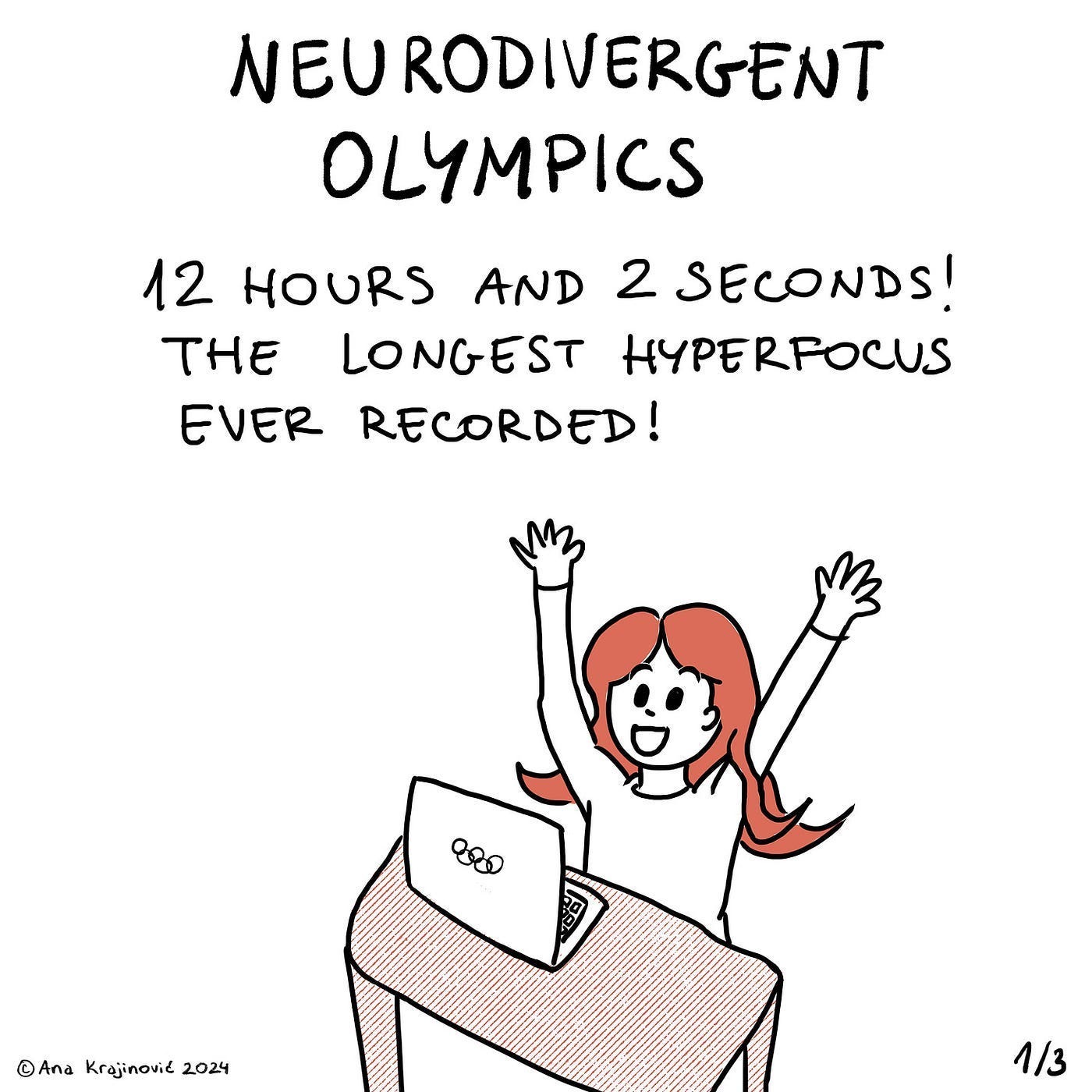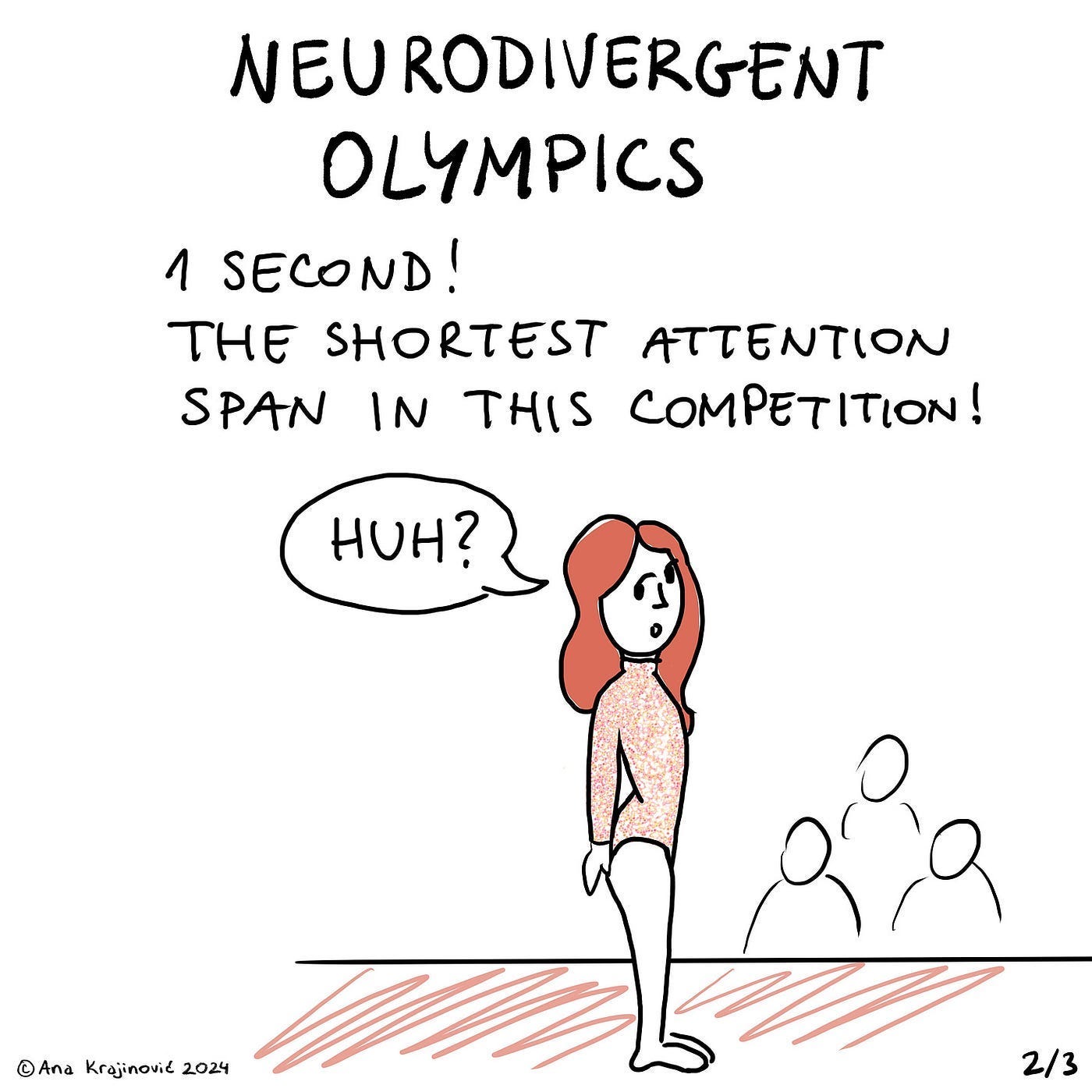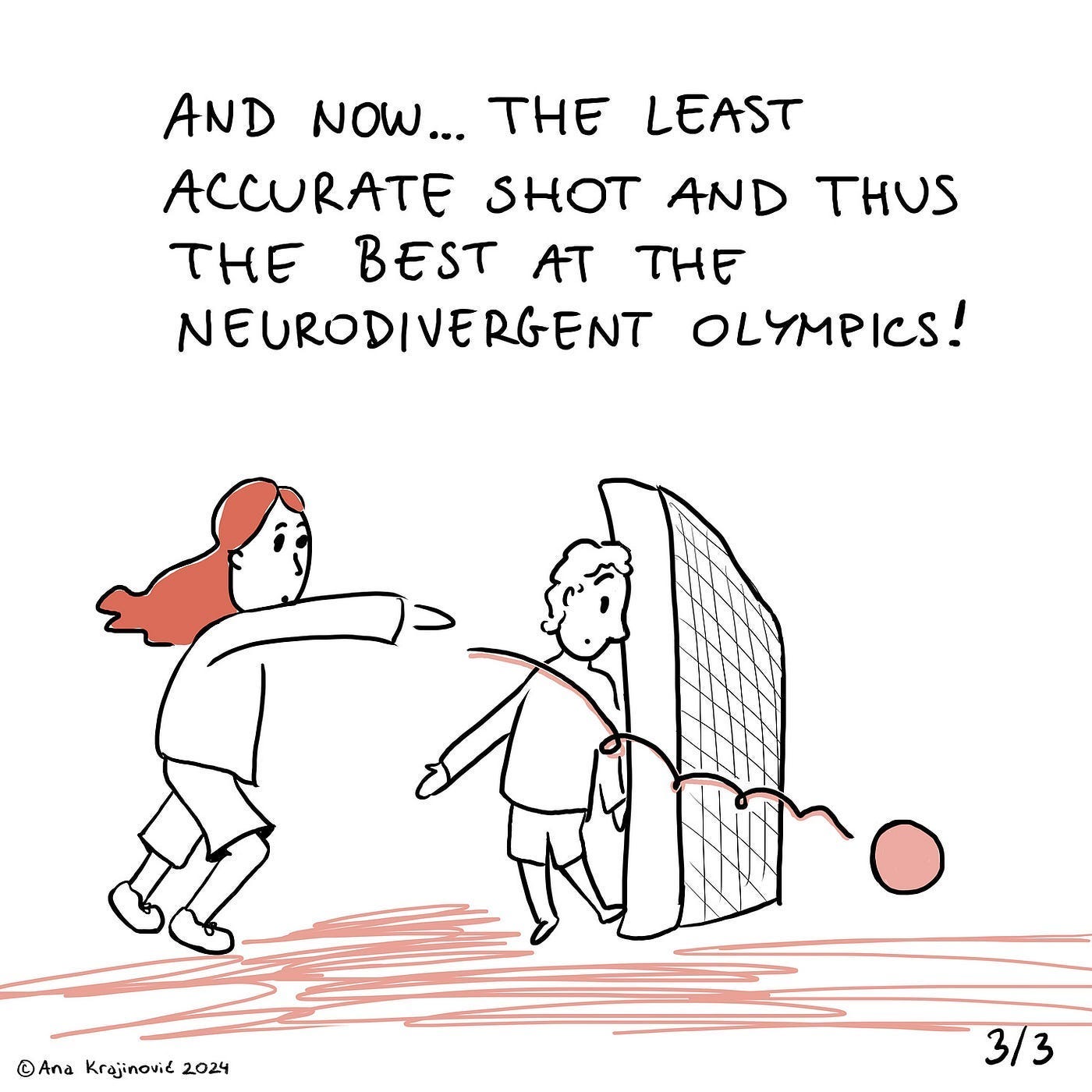Dear readers,
This week, I made a few comics inspired by one of the past Halloweens where I went as Wednesday Addams. Maybe these situations didn’t unfold exactly as depicted in these comics, but I did feel very much like myself in a Wednesday costume.
This post is also available on Medium and you can read it here. Do so especially if you are a Medium subscriber, thank you!
I couldn’t be satisfied with just making the comics, as you do, so I wrote a piece about neurodivergence. Here are 4 neurodivergent behaviors, explained in comics of course!
1. Just because I don’t behave in a “fun” way does not mean I can’t have fun. On my own terms.
What does it look like when someone is having fun? I won’t blame you if you say the person should be laughing, talking loudly, interacting with people, and dancing. However, if that person is neurodivergent, their fun can look very different (and maybe even involve a funky dance).
“Relax, have fun!” and “Smile!” are just some of the things I’ve been told over the years at parties. For the longest time, I thought I didn’t know how to have fun.
But internally, I knew exactly what having fun felt like. I knew it whenever I connected with someone over a deep conversation or watched my favorite movie. You could call that being a nerd, but even that was not entirely correct. I’ve always enjoyed the company of other people, but only if they understood me and did not judge me for being different.
I didn’t have the patience of a science nerd and I could also not follow social rules intuitively like everyone else. That is why the Wednesday dance hits so close to home for me. Whenever I took the advice to relax and have fun and started dancing in my own way, a swarm of social attention and judgment came my way.
Only many years later, I found out I have ADHD (Attention Deficit Hyperactivity Disorder) with autistic traits, which can be subsumed under the term “neurodivergent”. So much about my behavior finally made sense.
My fun simply looked different and that’s ok. Fun is an internal feeling and it cannot be determined by others. Only I know what fun means for me.
My special interests propel me to be creative and look for fun in unusual places. One day I might be doing LEGO photography, the next day I am learning screenwriting, and then dancing in a non-neurotypical way… The possibilities are endless.
Contrary to popular opinion, neurodivergent fun can also be had in social situations, with the right people of course, which brings us to the next point…
2. Neurodivergent people ARE social, they just want to hang out with like-minded people.
One amazing superpower of neurodivergent people is being able to spot others just like us a mile away. Because of our social misgivings, we can generally only get along well with other people who don’t mind our quirky bending of social norms. You are into my funky dance? You are my friend.
And just to be clear, we don’t do this because we are being exclusive. We simply don’t know how to engage in small talk or keep a conversation going when there is no deep connection. This often gives a false impression of not being interested in socializing at all, when that couldn’t be further from the truth. We just need to find people who can understand us.
3. Neurodivergent people are not lazy. They just have a hard time interacting with the world around them.
Not being able to pay attention, poor motor skills, and lack of social skills are all hallmarks of neurodivergent conditions like ADHD and autism. Unfortunately for us, these issues are often simplistically labeled as “being lazy”. The truth is, however, far from simple.
Different brain development and chemistry in neurodivergent people can lead to a myriad of issues. Most notably, impaired executive functioning can make it hard to keep attention because our dopamine-thirsty brains are seeking the next exciting thing to focus on.
Somewhat paradoxically, once we do manage to focus on anything, it can be hard to let go and shift our focus to something else. This is known as hyperfocus, often mistaken for productivity. And while it might be productive on paper, after countless hours of work, hyperfocus can so easily turn on you and leave you even more debilitated than before.
Another pet peeve of mine is being called lazy for not being able to deliver in physical activities. Even after training and trying so hard in Physical Education, I could never match the level of my peers.
It turns out that the reason for this was not me being lazy. My poor motor skills were a symptom of my neurodevelopment conditions. As shown in scientific research, ADHD and autism can lead to poor visuospatial processing and thus to poor motor skills (Cummins et al. 2005).
The motor skills performance observed in children with ASD and ADHD is worse than those without a disability on measures of gross motor development as well as locomotor and object control skills. Poor motor performance is highly related to low self-esteem, to higher levels of anxiety and to poor social functioning. (From Cummins et al. 2005)
4. Neurodivergent conditions can be a disability, a superpower, both, or neither.
The discourse on neurodivergence can get very polarized, from discussions on what counts as a disability to people claiming that ADHD is a trendy superpower to have. While these (mostly online) discussions don’t amount to anything, here in the real world, we can see the reality for what it is. All these perspectives are true.
For some people, being neurodivergent is a total disability, while for others it can appear at a subclinical level (and maybe seem like a superpower?). For me, both the disability and the superpower definition describe my neurodivergent experience.
On some days, I cannot properly function in all the tasks that are required of me and I need help in caring for myself. On other days, I am inspired, curious, and driven because maybe something positive has happened that day. My disproportionate emotional response to it makes me feel invincible and truly like a superhero. Having ADHD means experiencing the constant grind of these ups and downs.
At least we have the ups to look forward to (and funky dances that come with it) :)
The end
Wednesday, Halloween, ADHD, autism, it’s a wrap!
What are your experiences with neurodivergence? Have your behaviors ever been misinterpreted through a neurotypical lens? Let me know in the comments!
If you liked this, click like and share the post with your friends.
Until next time,
Ana




